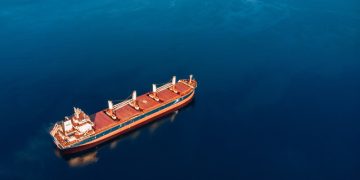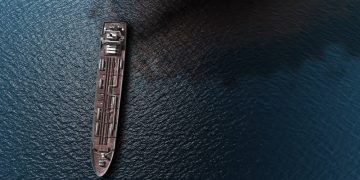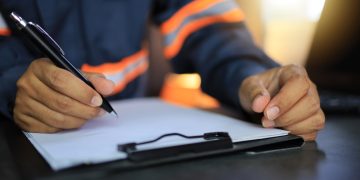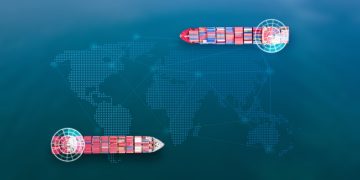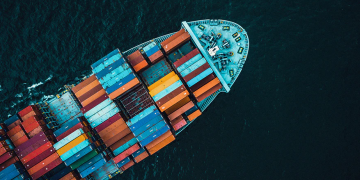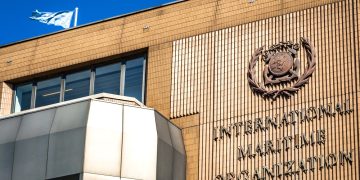The International Maritime Organization (IMO) has published a short video on the Hong Kong Convention which is aimed at ensuring that ships, when being recycled, do not pose any unnecessary risks to human health, safety and to the environment.
Hong Kong Convention enters into force in June 2025
In late June, a historic moment for the maritime industry took place as the Bangladesh and Liberia ratified the Hong Kong International Convention for the Safe and Environmentally Sound Recycling of Ships (the Hong Kong Convention, HKC), thus allowing it to enter into force. According to the IMO, the HKC will become effective on 26th of June 2025.
The Hong Kong Convention was adopted in 2009. There are now 22 contracting states: Bangladesh, Belgium, Republic of the Congo, Croatia, Denmark, Estonia, France, Germany, Ghana, India, Japan, Liberia, Luxembourg, Malta, the Netherlands, Norway, Panama, Portugal, São Tomé and Príncipe, Serbia, Spain, and Turkey.
IMO has produced a video which outlines the need for universal ship recycling regulations. The film also explains how IMO is helping Member States improve the environmental and safety standards in their ship recycling industries in line with the requirements of the Hong Kong Convention.
Since the HKC was adopted 14 years ago, the UN’s 17 Sustainable Development Goals have been ratified by its Member States, and global awareness of the need to protect the environment, transition from a linear to a circular economy, combat poverty and inequality, and provide everyone with access to safe and decent employment has grown.
Industry embraces the decision, but not without skepticism
The Hong Kong Convention’s accession into force allowed many to breath a sign of relief as it aims to endure a more sustainable path for ship-recycling. Major organizations, including BIMCO and the International Chamber of Shipping (ICS), expressed enthusiasm and welcomed Bangladesh’ and Liberia’s decision to ratify the Convention. The International Ship Recycling Association (ISRA) welcomed the Convention as well and urged the ship recycling industry and the legislators to use the upcoming two years to further adjust the HKC-regime.
Alas, the enthusiasm was not universal. Several voices rose the following period to doubt the Convention’s effectiveness. Environmental non-governmental organizations (NGOs) showed great reluctancy to welcome the Convention. Instead, they alleged that requirements fall short of ensuring ethical, safe, and environmentally sound ship recycling and risk undermining existing laws and efforts to reform the sector’s dangerous and polluting practices. As Sigurd Enge, Senior Advisor, Bellona Foundation, highlighted: ‘’This is not a proud moment for IMO. It has been a fourteen years’ wait for a convention that does not solve the problems it was supposed to address.”
It is unlikely that the Hong Kong Convention text will be re-opened to address some of the gaps and developments that have arisen over 14 years – including the questions raised in this note – in the next two years
… added Watson, Farley and Williams (WFW) experts.
Where we stand with ship recycling
The UK P&I Club provides the following updates:
UN Basel Convention: Basel does not make specific reference to ship recycling but it refers to “hazardous waste”. When a shipowner forms an intention to scrap or to recycle a ship, the ship to be scrapped can be construed as hazardous waste for the purpose of Article 5 of the Convention. Basel incorporates the “polluter pays” principle and encourages the early ratification of the HKC.
EU Waste Shipment Regulation (EU WSR): Basel and the Basel Ban Amendment were implemented by the EU countries via the EU Waste Regulation (“EU WSR”), in force from July 2007. The EU WSR applies the Basel requirements to all ships greater than 500gt in EU/ EEA waters, regardless of flag. Like Basel, however, the difficulty in enforcing the EU WSR with regards to a ship as waste lies in determining when the ship becomes waste. If a decision to scrap the ship is taken prior to the vessel departing from an EU port or EEA waters for recycling, the ship can only be recycled in an OECD country.
EU Ship Recycling Regulation (EU SRR): The EU Ship Recycling Regulation (SRR) has been in place since 2013 coming into force incrementally up until 2020. It essentially translated the terms of the Hong Kong Convention into EU legislation. The SRR has limited applicability to non-EU flagged ships making port calls at a Member State’s port or anchorage but is legally enforceable against ships flying the flag of a Member State.
How effective is the HKC? Key considerations
With its failure to outline robust environmental and social standards for the sound management of the many toxic substances contained in end-of-life ships, the Hong Kong Convention falls short of the Basel Convention and the more recent EU Ship Recycling Regulation, Shipbreaking Platform notes, highlighting the following shortcomings:
- It sets no requirements beyond compliance with national rules for the management of hazardous wastes downstream.
- It endorses beaching, a practice long associated with pollution and health hazards for both workers and local communities.
- It lacks provisions to protect workers engaged in shipbreaking operations, who often face precarious work environments, lack of protective equipment and limited access to medical facilities.
- Many beaching yards boast that they already comply with the Hong Kong Convention, but independent audits of these facilities by the European Commission have identified several serious problems that disqualify them from the EU List of approved ship recycling facilities.
- The responsibility for its enforcement is only put on the end-of-life vessel’s flag state and the recycling state.
- Beaching yards in India and Bangladesh that already claim they comply with the Hong Kong Convention, but the costs related to managing hazardous materials safely, including residue oils, asbestos, and mercury, are not factored in. Instead, the costs are borne by workers, local communities and sensitive coastal environments.
Questioning how effective the Hong Kong Convention will be on implementation and enforcement, WFW experts note that ‘’A shipowner can largely avoid the EU SRR by flagging out. When the Hong Kong Convention comes into force, flagging out becomes more limited but is still an option.’’ In essence, the EU SSR Regulation brought the HKC ship recycling requirements into EU law.
Another major issue pointed out by WFW is that sanctions against a ship for violating the Hong Kong Convention requirements are published and enforced on a state-by-state basis by the Administration. By adopting the flag of a state not party to the Hong Kong Convention, sanctions are still avoidable. The Hong Kong Convention’s facility clearance process is currently under scrutiny. Classification societies have issued a slew of “statements of compliance” (“SoCs”) to ensure that the Hong Kong Convention’s standards have been met. However, the SoCs do not always carry the weight desired by other sector actors – financiers, for example, as WFW noticed.
The SENSREC project
According to IMO, almost all ship recycling worldwide is carried out in five countries: Bangladesh, China, India, Pakistan and Türkiye, three of which – Bangladesh, India and Türkiye – are Parties to the Hong Kong Convention.
Bangladesh is one of the world’s largest ship recycling countries by capacity. To help it to reach the point where it was ready to accede to the Hong Kong Convention IMO provided the country’s government with support through the Norwegian-funded project on Safe and Environmentally Sound Ship Recycling in Bangladesh (SENSREC).
As explained in the video, the SENSREC project provides legal policy support and on-the-ground assistance in recycling yards which has helped Bangladesh improve its ship recycling standards and ensure the safety of its workforce in one of the country’s most important industries.
Moving forward
Following such a long wait, does ratification of the HKC mean that all issues in this area are now resolved? The answer, unfortunately, is “no’’, argued UK P&I Club’s Jacqueline Tan. The Hong Kong Convention is indeed a regulatory framework that aims to aid in sustainability. However, there is no space for half measures when the wellbeing of entire communities is at stake. It took this many years for the Convention to come into force, and undoubtedly this is a good thing. The consistency demonstrated in efforts to bring HKC convention into force should not be forgotten but rather transformed into consistent efforts to identify any gaps and amend them accordingly.







